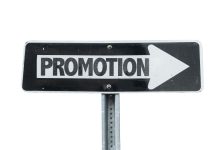The real world costs of operating sports betting in a fully legal market were given special attention by Joe Asher, CEO of William Hill US, during last week’s GiGse conference in Miami. Asher was speaking as part of a panel that was tasked with examining how transformational legal sports betting might be for the US gaming landscape.
Explaining some of the cost implications, he told delegates: “I’d like to drill down a little bit more on tax rates to help explain it. There’s a quarter point handle on the tax from the IRS that partially translates into five per cent of revenue, given the Nevada hold percentage as we call it in the business. And then you pay a sliding scale in Nevada that caps out at 6.75 per cent. The effective tax rate is lower than that – call it six per cent in VAT.
“In Pennsylvania you’re going to pay $10m dollars up front for the privilege of then paying 36 per cent at the state level on top of the five per cent to the IRS. So you’re paying $10m up front to pay 41 per cent.”
Asher was also keen to emphasise the difficulties in dislodging an entrenched black market. By way of example, he said: “There is a deeply, deeply, deeply engrained black market in Pennsylvania. Customers have in many cases a hands-on relationship with their bookie. It’s very convenient, he offers credit. Maybe he comes to their birthday party or christening, baptism, wedding or whatever. And he’s going to say ‘we go back a long way. Whatever you lose this year, at the end of the year I’m going to give you 25 per cent back on your losses’. The bookie who is offering that still has a 16 point percentage advantage over the legal market.”
He continued: “He is not going to have to pay $10m up front. He doesn’t have the vast compliance cost that we have in the regulated market. He doesn’t have a compliance or auditing department and all the other things you have in a legal market. And do I think it makes it incredibly difficult to migrate people from the black market to the legal market in a state like Pennsylvania. And I don’t think people really understand that.”
Backing Asher’s view was Benjie Cherniak, president of Don Best Sports, who noted: “I would even add to that. In the black market there are no rules. They have the ability and the flexibility if they need to cut the VIG to maintain a more competitive product. I think also by the very nature of our regulatory model being state by state if you look at the black market there is no state by state restriction – they’re working on a national basis.”














